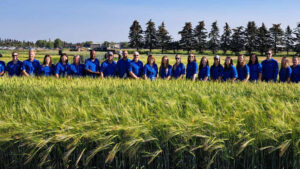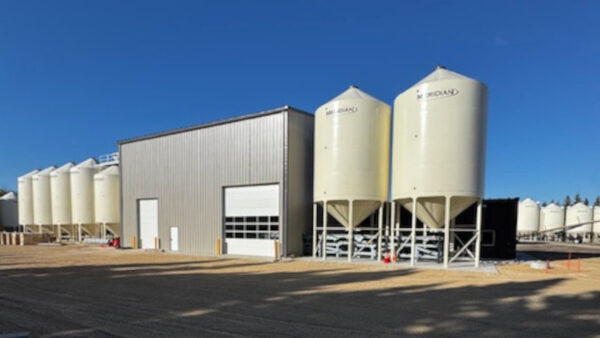Sajid Rehman didn’t plan on ending up in Alberta, helping steer one of Alberta’s most important cereal breeding organizations through a time of transformation. But in many ways, it’s exactly where he was meant to be.
“I grew up in Pakistan and always dreamed of studying abroad,” he says. “I was fortunate to receive a scholarship from the Netherlands government and ended up at Wageningen University—one of the top agricultural research universities in the world.”
That decision set him on a path through academia and global agricultural development: a master’s in crop science with a specialization in integrated pest management, a PhD and two postdocs, and then a pivotal role at ICARDA—the International Center for Agricultural Research in the Dry Areas. There, he supported global wheat and barley breeding programs for seven years.
“When I came to Canada, I started the Plant Health Lab in Nova Scotia for the Department of Agriculture,” Rehman explains. “But when the opportunity opened up at the Field Crop Development Centre, I knew it was a perfect fit. I’d been working in resistance breeding in cereals for years.”
Today, that centre is known as Western Crop Innovations (WCI), and it’s celebrating its first anniversary under its new name and governance model. For Rehman, now a pathologist at WCI, the moment feels pivotal.
As a plant pathologist, Rehman is responsible for evaluating breeder-developed lines against a long list of diseases. It’s a massive undertaking. Despite all this complexity, WCI pushes forward, planting and testing even when conditions are unpredictable.
Looking ahead, Rehman is hopeful—but clear-eyed—about what WCI needs.
“Right now, we’re a not-for-profit. We need stable core funding. If you want a successful breeding program, you need to think in decades, not quarters.”
Without stable funding, Rehman warns, the collaborative model begins to break down. “If every researcher is chasing their own project funding just to cover staff time, we lose our cohesion. We become silos. Right now, we’re working as one unit. And that’s what makes us efficient, effective, and impactful.”
Ultimately, Rehman sees WCI as playing a role far beyond just breeding new barley varieties.
“Farmers need an independent voice. Right now, a lot of them are growing what’s marketed to them. But is that what’s best for their operation? That’s where WCI can fill a critical gap—by offering an honest, unbiased opinion based on data, not sales targets.”












